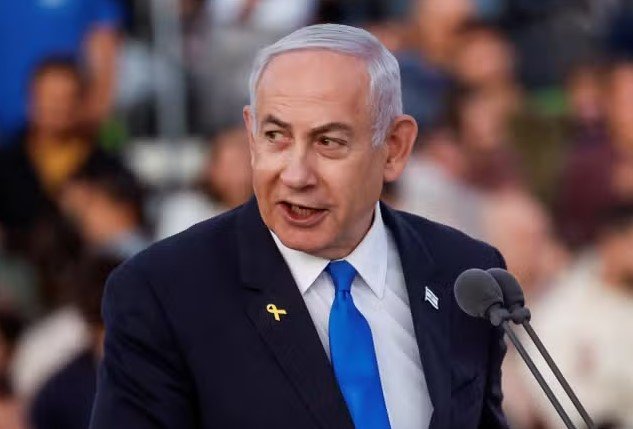Hunger deaths rise, global alarm deepens as Israeli PM signals sweeping shift from past Gaza policies
Benjamin Netanyahu isn’t backing down.
In a move that could trigger one of the most dramatic escalations since the Israel-Gaza conflict reignited last year, Israel’s prime minister is reportedly preparing to push for a full military occupation of the Gaza Strip—including areas where hostages are believed to be held.
The statement, issued late Monday night by Netanyahu’s office, used the Hebrew word that can mean both “occupy” and “conquer.” That ambiguity was no accident—and it didn’t go unnoticed.
Israeli media, including The Times of Israel, interpreted it as an intention to take complete control of Gaza. Not just militarily. Permanently. The kind of control Israel hasn’t exerted since it withdrew from the enclave two decades ago.
A Coalition Under Pressure—and a Leader Cornered
Netanyahu’s latest posture isn’t coming out of nowhere.
The prime minister’s grip on power has become increasingly precarious. His coalition relies heavily on hardline right-wing factions—some of whom have repeatedly called for Gaza to be “reclaimed” by Israel in full. Now, with hostage deals stalled and starvation worsening in the strip, the pressure is reaching a boiling point.
According to sources familiar with recent Cabinet meetings, Netanyahu’s closest allies—including Finance Minister Bezalel Smotrich and National Security Minister Itamar Ben Gvir—have urged the military to go all-in.
Their argument? Limited incursions haven’t worked. Hamas hasn’t folded. Hostages remain in captivity. And the global community is, in their words, “bending over backwards” for ceasefires that benefit terrorists.
Netanyahu, already facing intense criticism over his handling of the war, appears ready to call their bluff—and run with it.

Global Alarm Bells Are Ringing Louder
The international reaction has been swift—and deeply uneasy.
Foreign ministries across Europe and the Arab world have warned that a full Israeli occupation of Gaza would only deepen the humanitarian crisis and make diplomacy impossible.
Meanwhile, the United States has remained cautious. A White House official told NBC News the Biden administration is “seeking clarity” on Netanyahu’s intentions and continues to support “a political solution—not military occupation.”
Deaths from Starvation Are No Longer Hypothetical
This isn’t just about troop movements.
Inside Gaza, the humanitarian crisis has reached a new low. The Ministry of Health in the strip reported on Sunday that at least 73 children have died of hunger-related complications in the past 30 days alone. Aid groups say that number may actually be higher, given the collapse of the enclave’s healthcare infrastructure.
Access to food, water, and fuel remains severely restricted.
A World Food Programme official told Al Jazeera that over 80% of Gaza’s population is now “severely food insecure”. In northern Gaza, entire districts have gone days without bread. Infants in hospitals are being fed rice water. Humanitarian convoys are being blocked at key crossings.
And amid all this, Israel’s declaration that it may now reoccupy the territory is adding another layer of fear—among Palestinians and aid workers alike.
Not Everyone in Israel Is on Board
Inside Israel, the proposed move has stirred fierce debate.
Some military veterans and former intelligence officials have warned that occupying Gaza again could drag Israel into a multi-year quagmire, one that would stretch the IDF thin and possibly provoke wider regional wars.
Critics also point to the withdrawal in 2005, when then-Prime Minister Ariel Sharon—no dove himself—declared that maintaining permanent control over Gaza was “untenable and unsustainable.”
That’s now being reconsidered.
But opposition leader Yair Lapid has already condemned the idea, calling it “a dangerous fantasy” and accusing Netanyahu of “playing political chess with soldiers’ lives.”
Here’s What’s at Stake
The implications of a full occupation aren’t just political—they’re deeply strategic. Here’s a breakdown of the likely consequences:
| Factor | Potential Impact |
|---|---|
| Military | Higher IDF casualties, need for permanent patrols |
| Humanitarian | Aid access worsens, civilian casualties increase |
| Diplomacy | Ceasefire talks collapse |
| Regional Stability | Hezbollah and Iran may escalate on northern front |
| Domestic Israeli Politics | Coalition strengthened short-term, long-term risk |
And then there’s the hostage dilemma.
Israel believes dozens of its citizens are still alive in Gaza, possibly in tunnels or safehouses controlled by Hamas. A full occupation might offer more options for extraction—or it could provoke executions and intensify fighting in densely populated areas.
Definition Matters—And Netanyahu Isn’t Clarifying
One of the biggest questions surrounding the Monday night announcement is linguistic: What did Netanyahu mean when he said “occupy”?
The Hebrew term used—לכבוש (lichbosh)—has been widely debated. Depending on context, it can imply conquest, control, or military occupation.
Netanyahu’s office hasn’t clarified. Some suggest that’s deliberate, allowing him to appeal to hardliners while leaving some diplomatic room open.
But the Israeli public—and the world—may not have the luxury of ambiguity for long.
